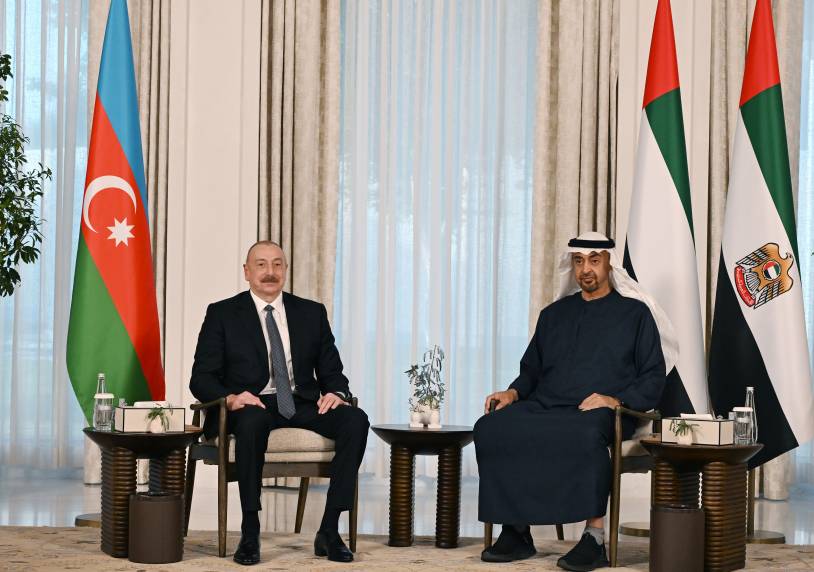17:17
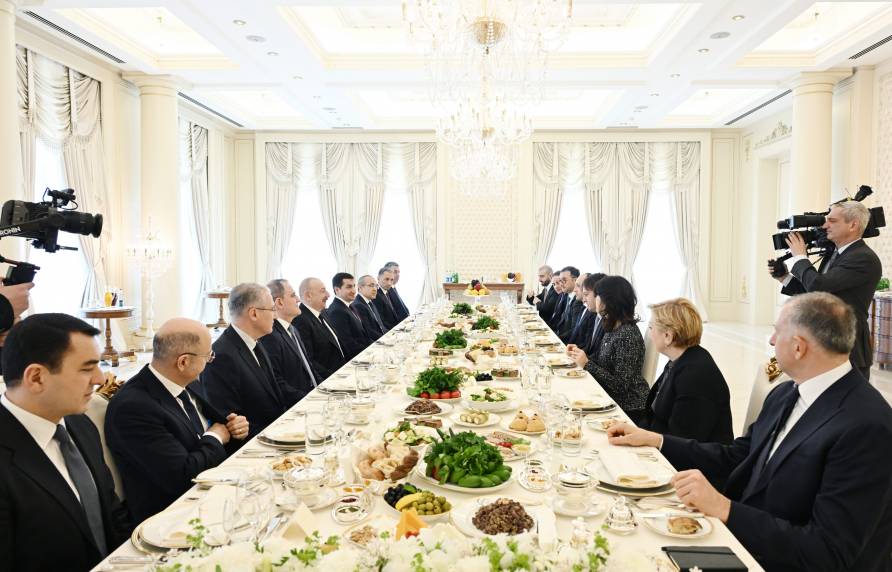
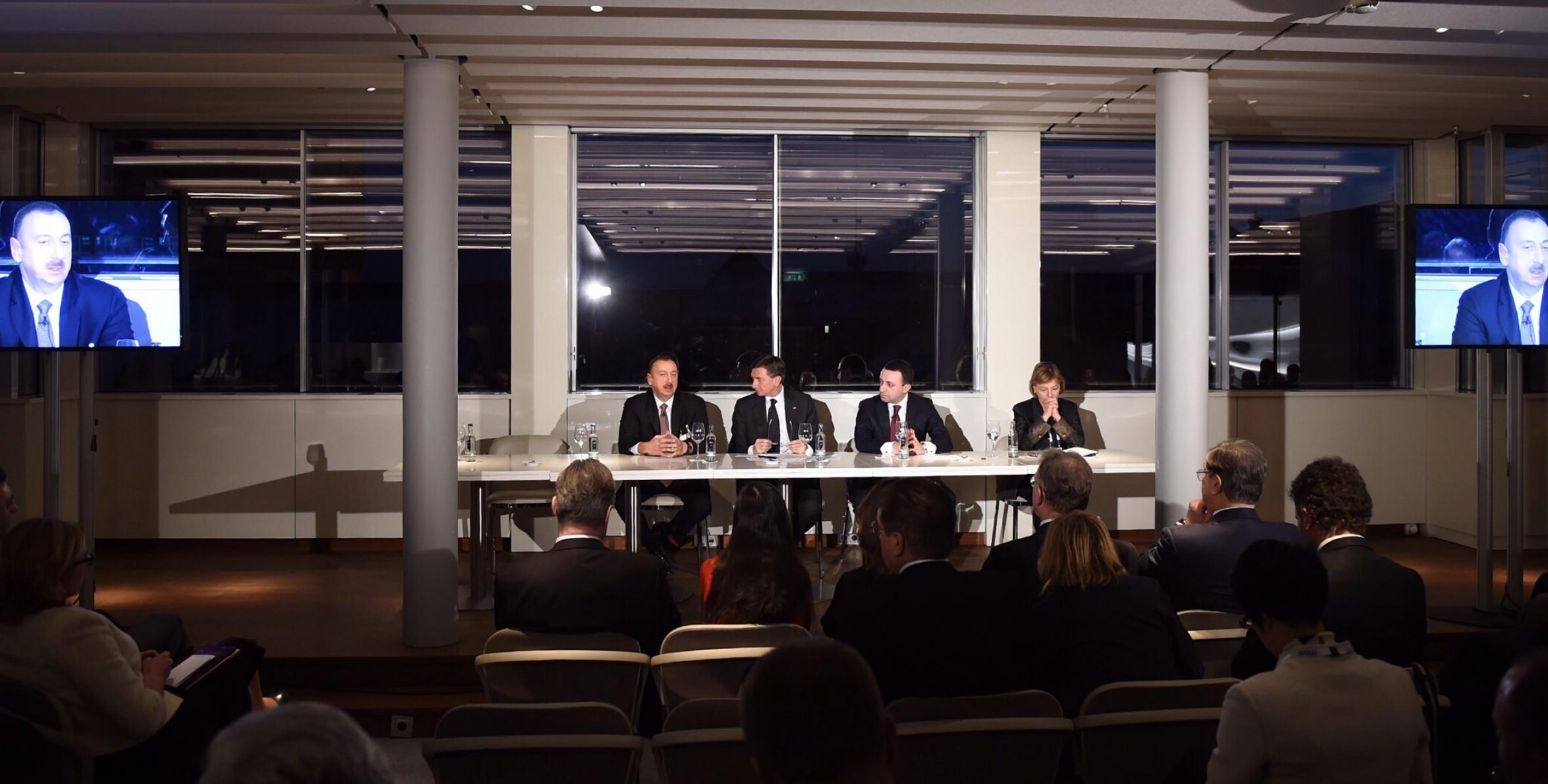
The Munich Security Conference has featured "Beyond Ukraine: Unresolved Conflicts in Europe” session. President of the Republic of Azerbaijan Ilham Aliyev and his wife Mehriban Aliyeva attended the event.
The head of state made a speech and responded to questions at the session which was chaired by Slovenian President Borut Pahor.
President Borut Pahor:President Aliyev, what do you think? Are you optimistic enough? Maybe huge crisis that we are facing in Ukraine could revoke some good initiatives to settle down frozen conflicts in a way that we sometimes try to forget. What is your comment on this possibility?
President Ilham Aliyev: Of course, this tragic situation in Ukraine attracts attention to other protracted conflicts, which last for many years. In our case, the conflict between Armenia and Azerbaijan has a history of more than twenty years. It started actually even before the collapse of the Soviet Union. After the collapse of Soviet Union it aggravated and resulted in occupation of internationally recognized territories of Azerbaijan. Twenty percent of the territories are under occupation. Nagorno-Karabakh which is a historic part of Azerbaijan is occupied. All the Azerbaijanis have been expelled from Nagorno-Karabakh and seven districts where 700,000 people lived, is also occupied by Armenia. Everything is destroyed there, and we have been in the process of negotiations for more than twenty years without any result. OSCE is dealing with that. OSCE has a special group, which is called Minsk Group, co-chaired by three permanent members of the United Nations Security Council – France, Russia and the United States. For more than 22 years now this group has been active but without any result.
President Borut Pahor:Why? How do you explain it?
President Ilham Aliyev: I think that there was not enough international pressure on Armenia. What we is that sometimes resolutions of the United Nations Security Council are implemented in days, if not hours. In our case, there are four resolutions of the Security Council of the United Nations adopted in the beginning of 1990s – but none of them have been implemented. I think lack of political will on behalf of the mediators to impose adequate pressure on the aggressor is the real result of what we have today. Armenia is a largely dependent country. This country is not self-sufficient. They cannot develop. And even their statehood is under question. Without external support to Armenia they can not function and they get external support mainly from the countries which are co-chairs of the Minsk Group. This is a paradox. We see here double standards, and that’s an issue of disappointment. I’d like to say that all the conflicts in the post-Soviet era must be treated from the same angle. Territorial integrity of Azerbaijan is of the same value as the territorial integrity of Ukraine which everybody is now talking about.
President Borut Pahor: Do you think that this conflict is in the shadow of present Ukrainian issues?
President Ilham Aliyev: Actually it was in the shadow of other important international events. The Ukraine issue, by the way, attracted some attention to this conflict. And I think that the lessons of the Ukrainian issue must be very carefully examined. If the conflict between Armenia and Azerbaijan was resolved probably there would have not been the conflict now which Ukraine faces. Because there is the same scenario, the same violation of territorial integrity, the same result, occupation, separatism. It’s like a mirror. Therefore, of course, we expect the same approach from the international community, from the leading countries of the world. In our case, unlike all the other conflicts in the post-Soviet era we have four resolutions of the United Nations Security Council. The fact that they are not implemented shows that the countries which adopted these resolutions do not respect their own decisions.
President Borut Pahor: Do you, Mr. President, think that the lack of this enlargement possibility of EU also causes problems in the region?
President Ilham Aliyev: In our case, in the case of the conflict between Armenia and Azerbaijan, I think this is not the major issue because our prospects for any kind of integration with the European Union are very clear.
President Borut Pahor: And NATO?
President Ilham Aliyev: I think it will largely depend on the issues of the organization`s agenda. In relations between a country like Azerbaijan and big international organizations, initiatives always come from organizations. So far the level NATO-Azerbaijan, EU-Azerbaijan cooperation is satisfactory to both sides. Neither NATO nor EU has any intention to interfere directly in the negotiation process and the officials of these two institutions have many times stated this fact. Therefore, we are actually relying on our own resources, and when ceasefire was established 21 years ago the main agenda for Azerbaijan was to build the state and strong economy, and rely on ourselves. At that time we still had some hopes that the international community will do something in order to restore justice. We had a lot of hopes in the beginning. As I said before the United Nations Security Council resolutions, resolutions of the European Parliament, Parliamentary Assembly of the Council of Europe and other international institutions all were supportive to our case. But as the time passed we saw that resolutions remained on paper, and that they are just statements, visits, activity, but no result. And then we realized that the fate of our state is in our hands.
President Borut Pahor: What should be the very first step to restore this confidence?
President Ilham Aliyev: I think it is very simple. The very first step would be the beginning of de-occupation by Armenia of the part of the occupied territories. Nagorno-Karabakh and seven districts are occupied. So the beginning of de-occupation of some of these districts, taking into that we will continue the negotiations, will immediately change the picture. Immediately there will be no hostility. There will be a ceasefire regime fully observed. We already made such a proposal that Azerbaijan will open all the communications with Armenia, and Armenia will have access through our railroad to Russia. And also Turkey will immediately open their communications with Armenia so we will eliminate any potential risks of the beginning of hostile operations and we will start to build trust.
But all our proposals face ignorance from the Armenian side because Armenia does not want peace. I think this is one of the most important reasons why conflicts are not resolved. One side wants peace and restoration of its territorial integrity, other side does not want peace. In our case, Armenia wants to keep everything unchanged. The reason is that their lands are not under the occupation. They don’t have this enormous problem as we have with million refugees. They are just making kind of steps just to imitate the negotiation process. So what to do? How to make Armenia more responsible? We need to work with international institutions on that, and, first of all, the mediators. There is a very clear signal to the Armenian leadership: stop occupation, start deoccupation. Azerbaijan made these proposals. We even made suggestions that we can have some social programs in Nagorno-Karabakh because people there are living in very poor conditions. We can engage in cooperation in transportation, in energy. We are open. And we proposed a high level of autonomy for Armenians in Nagorno-Karabakh. All the proposals are rejected.
President Borut Pahor: Does the Russian government have objectives in the Armenian-Azerbaijani conflict and the Georgian crisis?
President Ilham Aliyev: Well, the most important thing for us is to find a resolution to this conflict. Of course, we hope that Minsk Group co-chairs will do more in order to facilitate finding a resolution. We believe that it’s in the interest of all the parties, all the neighborhood that the Armenian-Azerbaijani conflict is resolved and peace is established. Therefore, of course we are doing a lot in order to enhance regional cooperation. For instance, our bilateral relations with Georgia are a very good example of regional cooperation and how cooperation can be achieved in the South Caucasus. If the conflict between Armenia and Azerbaijan is resolved, then Armenia can join our projects, including those related to energy security, transportation security. We hope that the Russian government has the same interest because every country is to be interested in having peace beyond its borders and having a friendly environment. I think that it is the most important – to find the soonest resolution to the conflict. I don’t think that the policy of having this artificial tension is to the benefit of any neighbor. Neighbor should be interested in stability. Stability in the neighborhood means stability in your own country, in your own region. Part of Russia is the Caucasus. And the Caucasus is a big area in which there are three republics, and autonomous republics in Russia. And there are strong cultural ties between Azerbaijan and the republics of the Russian Federation.
Representative of the Foreign Affairs Ministry of Armenia: My question goes to President Ilham Aliyev and, of course, it is on Nagorno-Karabakh. A unique case probably where the United States cooperates with Russia as President Aliyev rightly mentioned. Those three mediator countries outlined three main principles of conflict resolution. And those three principles are namely: the right of people to self-determination, non-use of force or threat of force, and territorial integrity. The mediators called on the parties to commit themselves to those three principles. Armenia did on numerous occasions. So my question is to Mr. President. Is Azerbaijan ready to commit itself to those three principles as the basis of conflict resolution?
President Ilham Aliyev: Azerbaijan definitely is the most interested side in this conflict because we want our territories back, we want our refugees and IDPs earn the right to return to their homes although there are no homes and everything is destroyed. By the way, OSCE sent two fact finding and field assessment missions to the occupied territories of Azerbaijan and issued a report which shows that everything is destroyed – all the buildings, all the cemeteries, all the mosques, everything. So it is a totally empty land. If our refugees return, we will have to engage in huge reconstruction. Therefore this is first. Our people have the right to return and we are interested in soonest resolution.
The problem is why this conflict is not resolved. Because Armenia doesn’t want resolution. And there are no mechanisms which could force Armenia agree with the international law norms. Resolution of every conflict must be based on the international law norms. These international law norms are very clearly identified in the United Nations charter and in Helsinki Final Act. Helsinki Final Act provides a very clear definition of the principals of territorial integrity and self-determination. We are not against the principle of self-determination, but this principle should not violate territorial integrity of the countries. Armenians of Nagorno-Karabakh and Azerbaijanis of Nagorno-Karabakh, who were expelled by the Armenian army, when they return they will have the right to organize their own life. But this should not violate the territorial integrity of the country. Territorial integrity of any country cannot be changed by force as Armenia tries to do, and plus territorial integrity of any country can not be changed without the consent of this country. This is the basic principle. Again, we are not against the fundamental principles of the international law. But Armenia first must respect the international law and implement four resolutions of the Security Council demanding immediate and unconditional withdrawal of the Armenian forces from the occupied territories.
Deputy Prime Minister of Bosnia and Herzegovina: This year we are commemorating the 20th anniversary of Srebrenica genocide. What is the role of properly putting and accepting the fact that these atrocities, genocides, crimes happened not in order to change the past, but in order to have a better future?
President Ilham Aliyev: Thank you very much for this question. Thank you for addressing this issue, you are absolutely right. We should have such a situation that the international community doesn’t ignore what happened in order not to have the same tragedy in other parts of the world. Unfortunately, tragedy in Khojaly is not very well known especially for European public opinion. Though now there are more than 10 countries which officially recognized Khojaly as genocide. As a result of this genocide more than 600 innocent people were killed, including 106 women and 63 children. And their only guilt was that they were Azerbaijanis.
So Armenians, unfortunately, have not confessed this war crime. They have not even apologized for that. They want to mislead the international public opinion about what they did in Khojaly. Due to the very active Armenian lobby in Europe, in the United States they manage to distract attention of the international community from this tragedy. And it did not get a lot of publicity. But everything is documented. It is filmed. We have evidences of those who survived that genocide. We have films documenting completely annihilated children and women. Therefore, in order to ensure that these things do not happen again, those who committed this crime first must, at least, apologize and admit that it happened, admit these war crimes. Reconciliation can only happen after that. If that happens it would be easier to reconcile, but I am strongly convinced that one day it will be possible because we lived together, we lived with Armenians side by side, in peace. There were a lot of mixed marriages and there were no hostility. We still have an Armenian church in the center of Baku, which was repaired. But Azerbaijani mosques in Shusha, in Aghdam are totally destroyed. They must not do this, in the first place. But now they must admit that this was wrong, they must apologize. And then, of course, we will reconcile because sooner or later we will have peace, and then the two nations will live side by side together.
German Bundestag member: My question is about double standards. We spent nearly the whole day discussing the Crimea. If we are talking about the Nagorno-Karabakh conflict, is it comparable with the Crimea issue?
Representative of Armenia: My question is to Mr. Ilham Aliyev. A few days ago the OSCE Minsk Group made an appeal to Azerbaijan to observe its commitment to peaceful resolution of the Nagorno-Karabakh conflict. And it is not accidental that such a call is made because of the continuous violations of the ceasefire regime by Azerbaijan on the line of contact in Nagorno-Karabakh and on the border with Armenia. Since January the ceasefire regime was violated at least 3,000 times, with several citizens killed from both sides. My question to Mr. Aliyev is: Don’t you think that by such acts the Azerbaijani side is escalating the situation, and is not making the peaceful solution of the conflict likely in the near future? The moderator of the panel asked us what is minimum that we should do. My call to Azerbaijan would be: stop firing.
President Ilham Aliyev: First, I’d like to answer the question from the German parliamentarian. Of course, one of the problems which we face on the very beginning of the conflict between Armenia and Azerbaijan is the policy of double standards. I said in my introductory comment that all the conflicts in post-Soviet area must be treated from the same position. Territorial integrity of Azerbaijan is of the same value as territorial integrity of Ukraine. Ukrainian territorial integrity is strongly supported and Azerbaijan supports it very strongly, unlike Armenia. In the United Nations General Assembly, we voted for Ukraine`s territorial integrity. And Armenia voted against Ukraine’s territorial integrity. This comes to the question which previous representative of Armenia asked about how Armenia respects the principle of territorial integrity. They even voted against Ukrainian territorial integrity. Because that’s the result of their policy. This country is not independent. They can not decide for themselves and always follow others. But double standards is a reality. Now when we see that sanctions are being imposed, Azerbaijan asks a question: Why is not Armenia sanctioned? They did exactly the same. Why have not sanctions yet been imposed on them? And probably the answer is that there is a very strong Armenian diaspora in the world, which protects Armenia from all potential adequate issues. Therefore as soon as double standard policy is removed from international agenda, the Nagorno-Karabakh conflict will be resolved very soon.
In response to the question which came from the representative of Armenia about the firing. Actually that is a tactics of the Armenian side - always to put the blame on us. They occupied our territories, violated the international law, committed genocide in Khojaly, destroyed our historical and religious monuments, and they are putting the blame on us. And the question is: What are Armenian soldiers doing on the occupied territories? What is an Armenian soldier doing in Aghdam? If he doesn’t want to be killed let him not go to Aghdam. Let him stay where he is – in Yerevan, in Gumry, in his own country. You have enough space for yourselves. Not many people are left in Armenia. So what are you doing in Aghdam? What are you doing in Fizuli? And as regards the question who aggravates tension, I will give just one illustration from the last year. Last year was remarkable from the point of view of activity of international mediators. President Putin organized a meeting between President Sargsyan and myself in August. In September, during the NATO Summit, US Secretary of State Carry organized the same meeting between the three of us. In the end of October President Hollande invited President Sargsyan and myself to Paris and we had, I would say, an excellent meeting, very up to the point, very constructive. And both sides, the Armenian side and the Azerbaijani side, reflected publicly that we consider this meeting as a big success, and we will try to reduce tensions on the line of contact. And what happens after that? Just in less than ten days Armenia organized large-scale military training in the occupied territory, particularly in Aghdam. According to their own information, 47,000 Armenian troops were having this exercise on the occupied territories. They used aviation. They used helicopters. For three days our army was very patient not to react, but then they drove military helicopters “MI-24” on our positions, and attacked our positions. Our army had to shoot down one of the helicopters. And that was a pretext to accuse Azerbaijan. So they make provocation, they provoke us, they show disrespect to the leaders of France, Russia and the United States who put so many efforts to tell us reduce tensions. They ignored this. They think that they can do anything and no one will punish them. So that’s the main reason, and now they put the blame on us and they say don’t fight, don’t shoot. My message to Armenia is stop occupation. As soon as you stop occupation we will have peace, we will have interaction, we will have reconciliation. The reason why it doesn’t happen is because the Armenian soldier is in Aghdam and Fuzuli.
X X X
Serbian Prime Minister Aleksandar Vucic, Georgian Prime Minister Irakli Garibashvili, Croatian deputy Prime Minister and Minister of Foreign and European Affairs Vesna Pusic also participated in the session
X X X
The working visit of President of the Republic of Azerbaijan Ilham Aliyev to Germany ended.
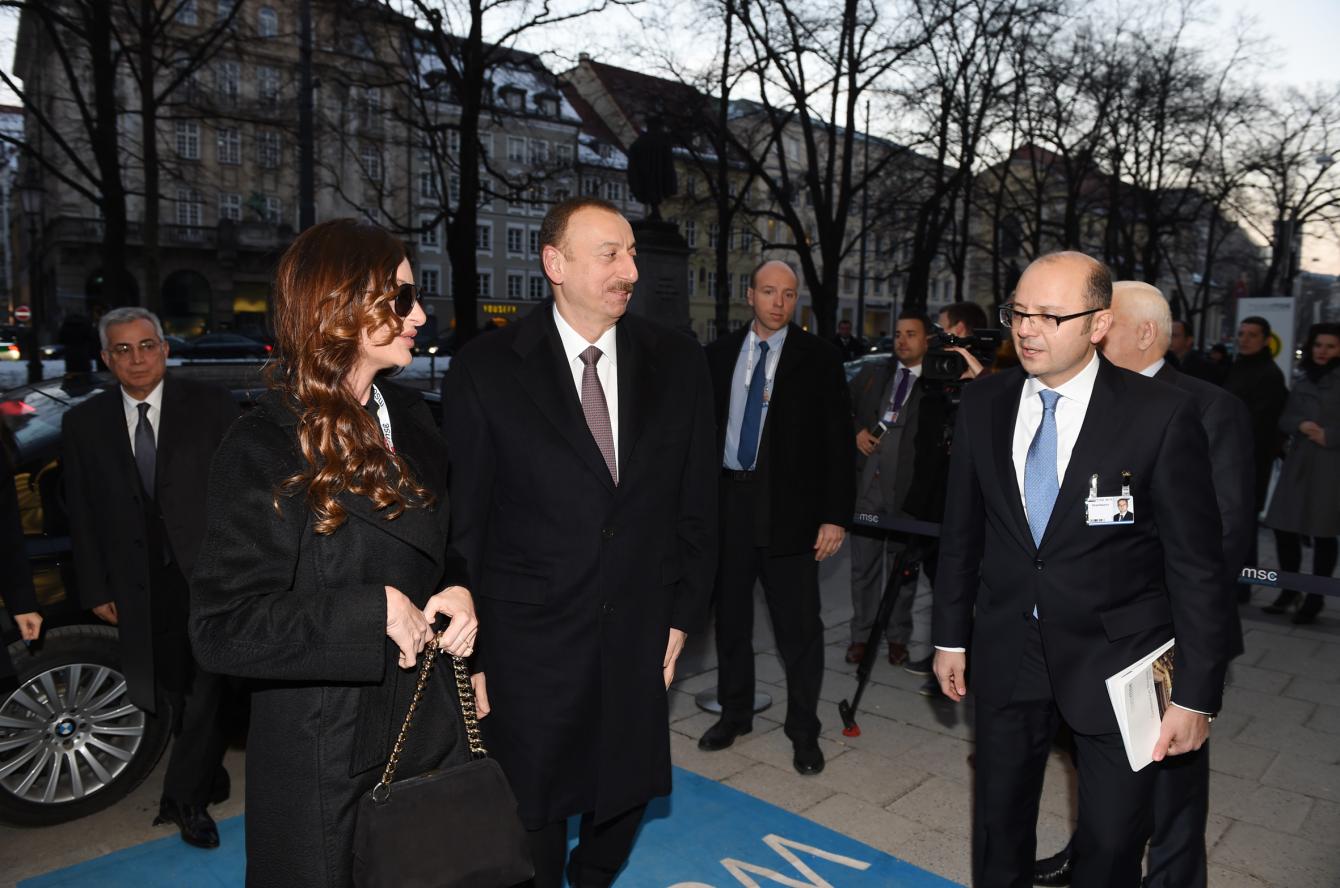
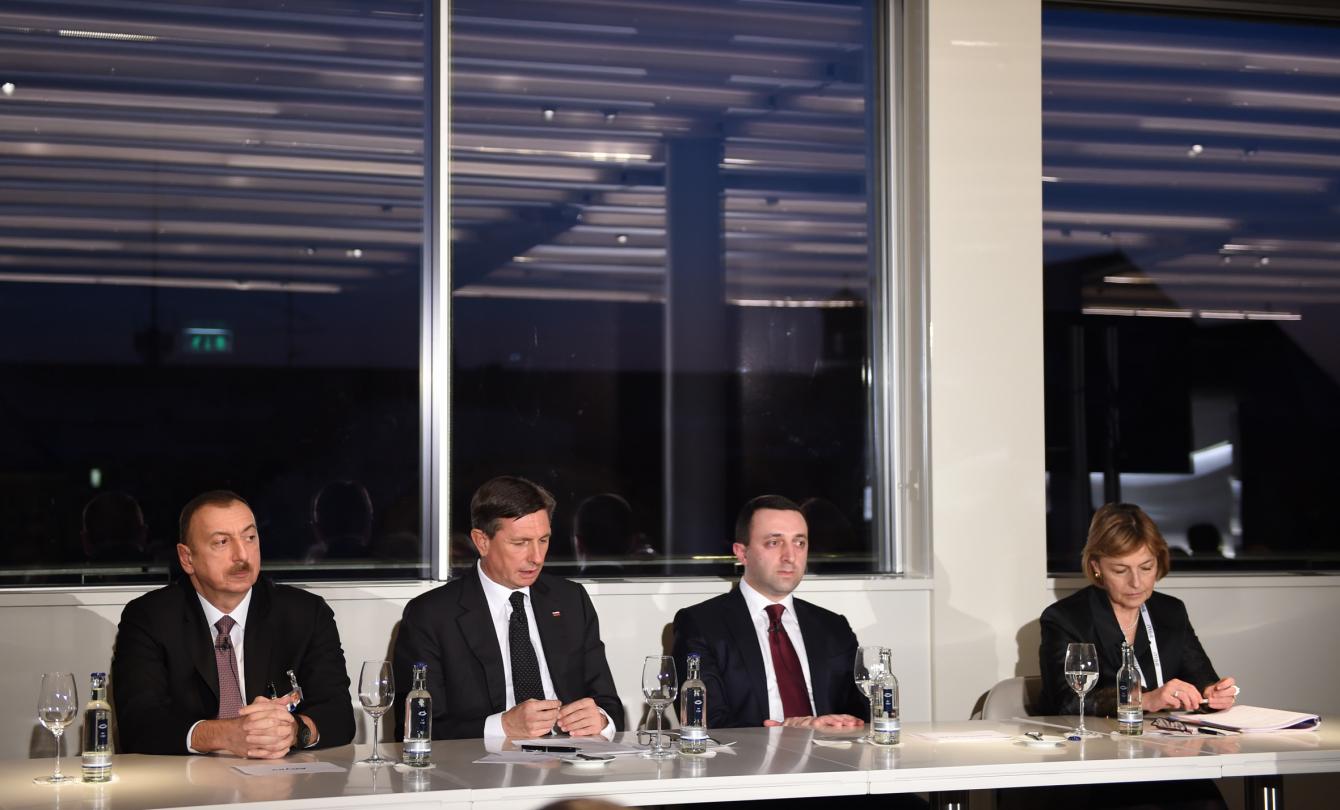
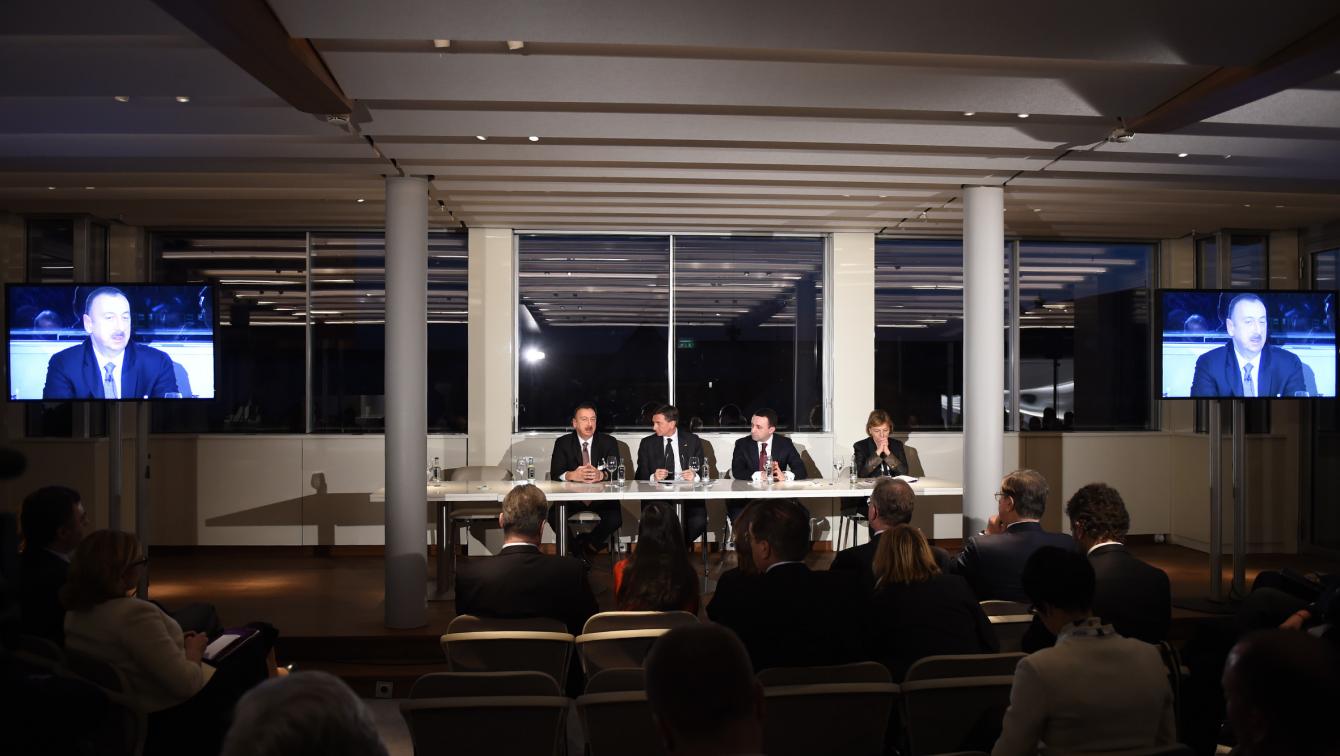
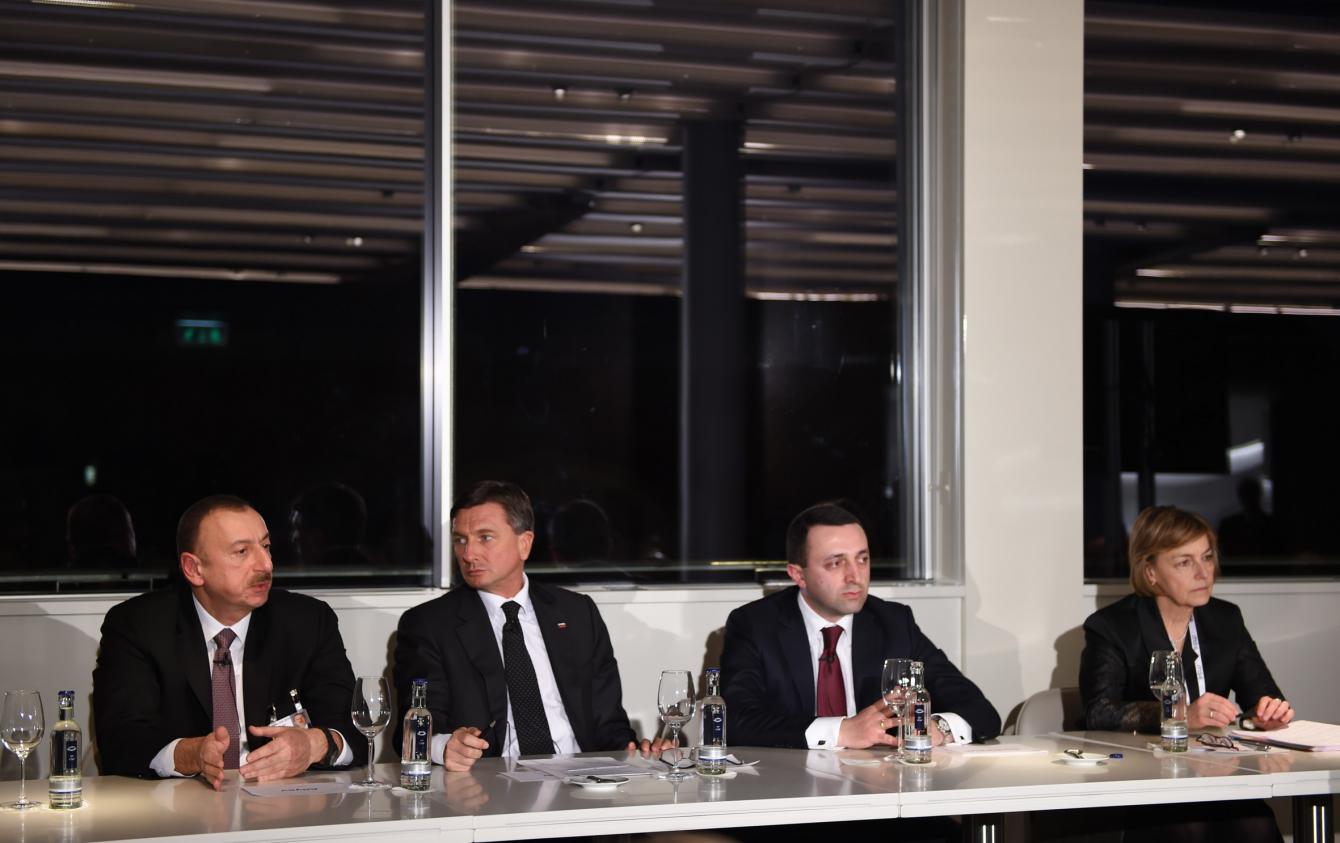
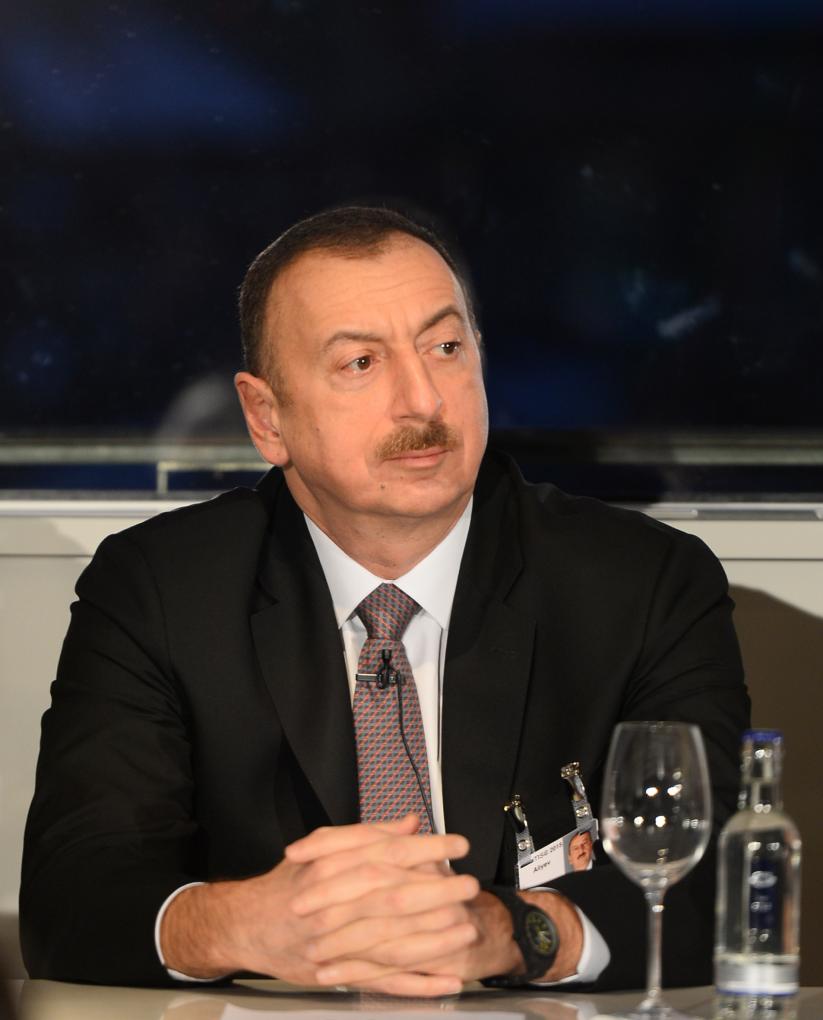
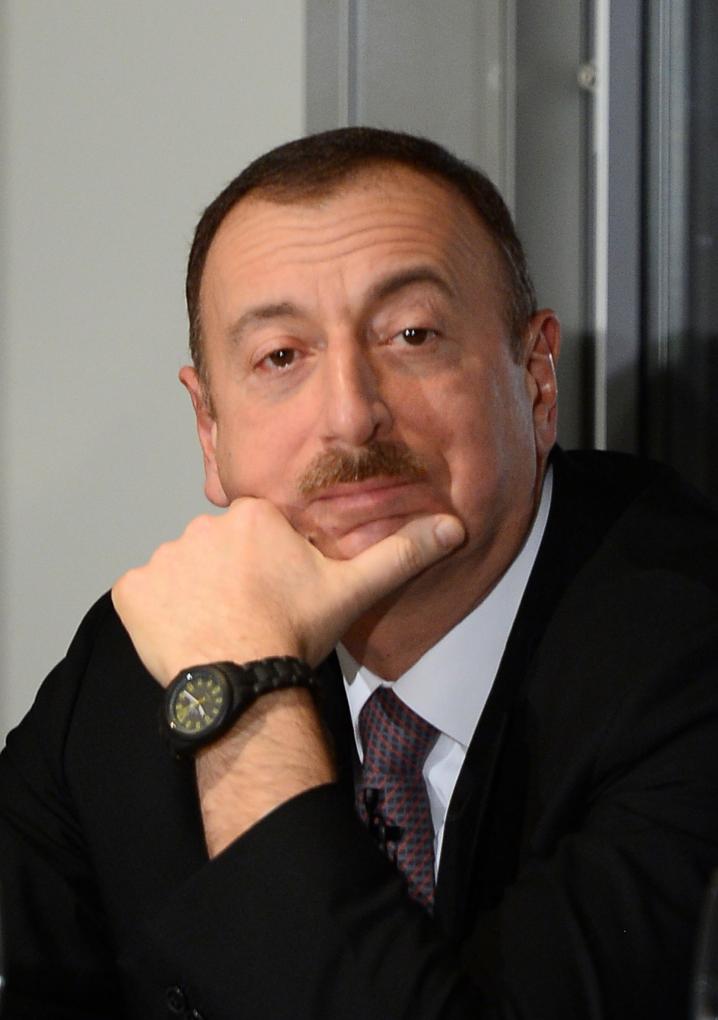
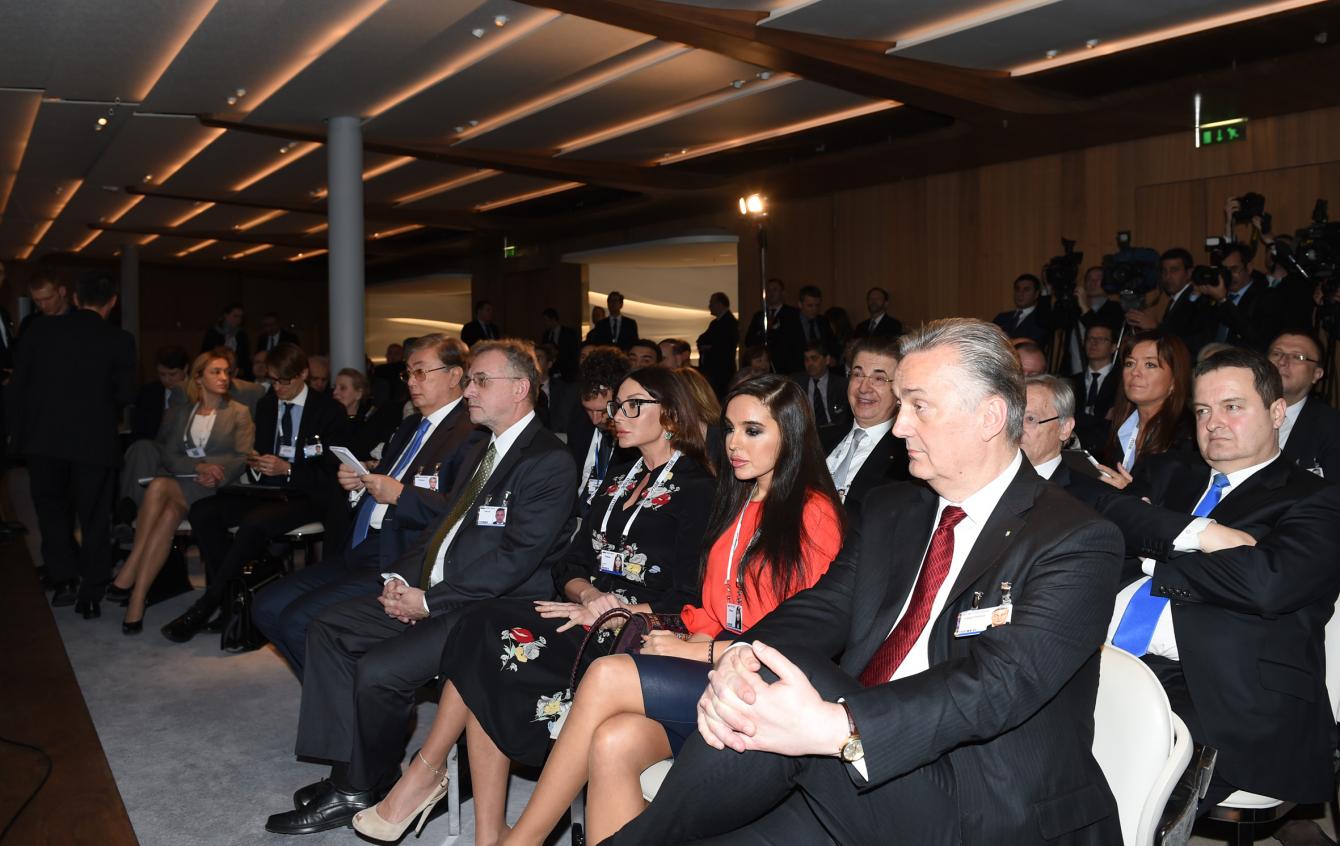
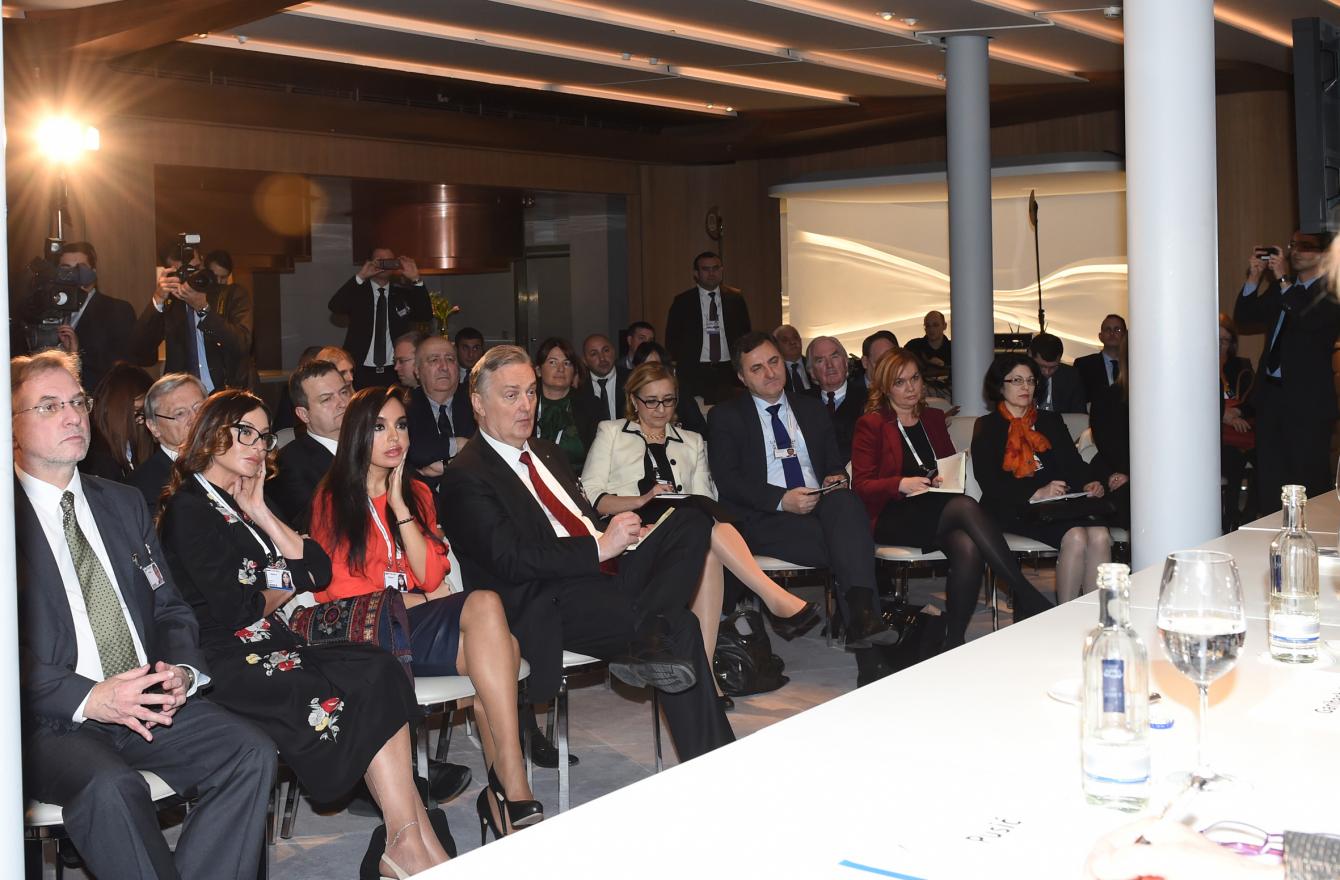
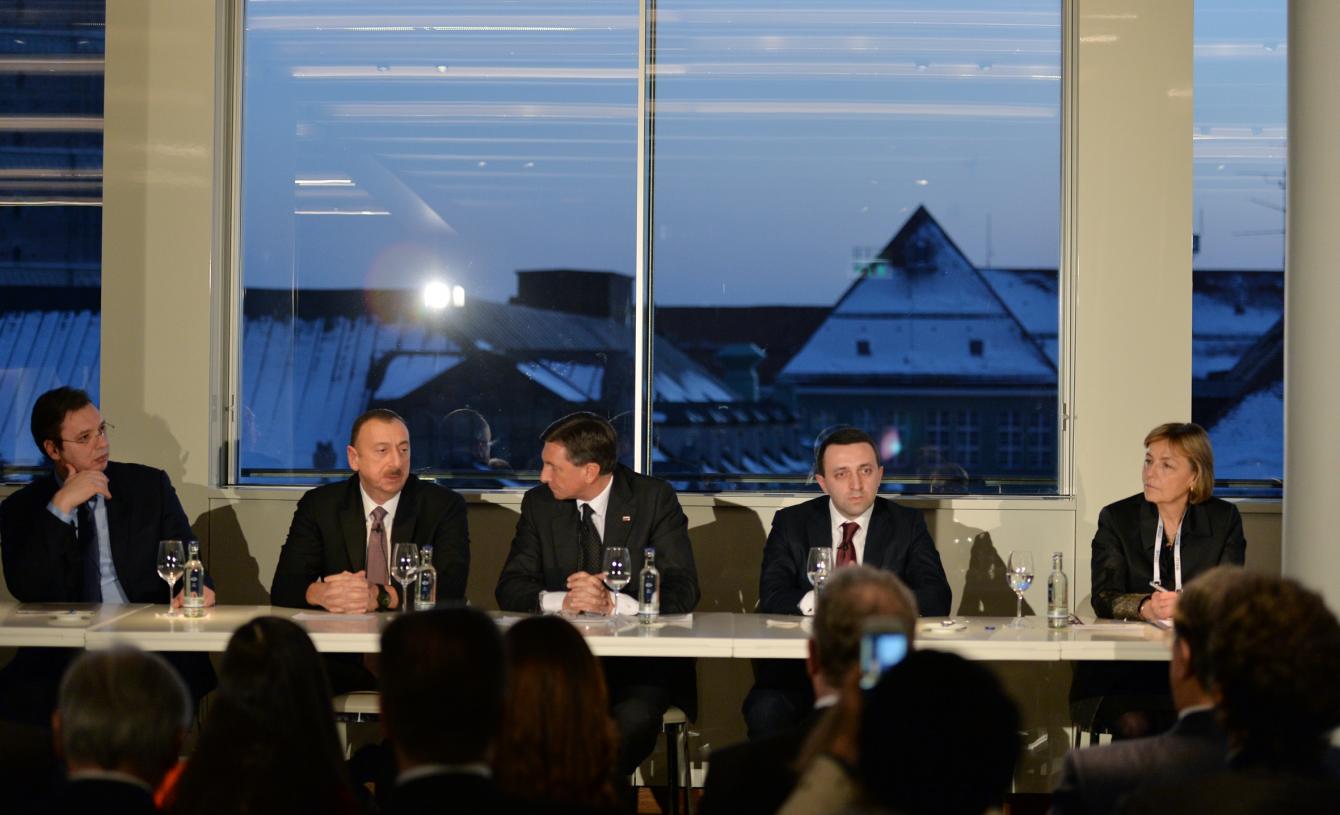
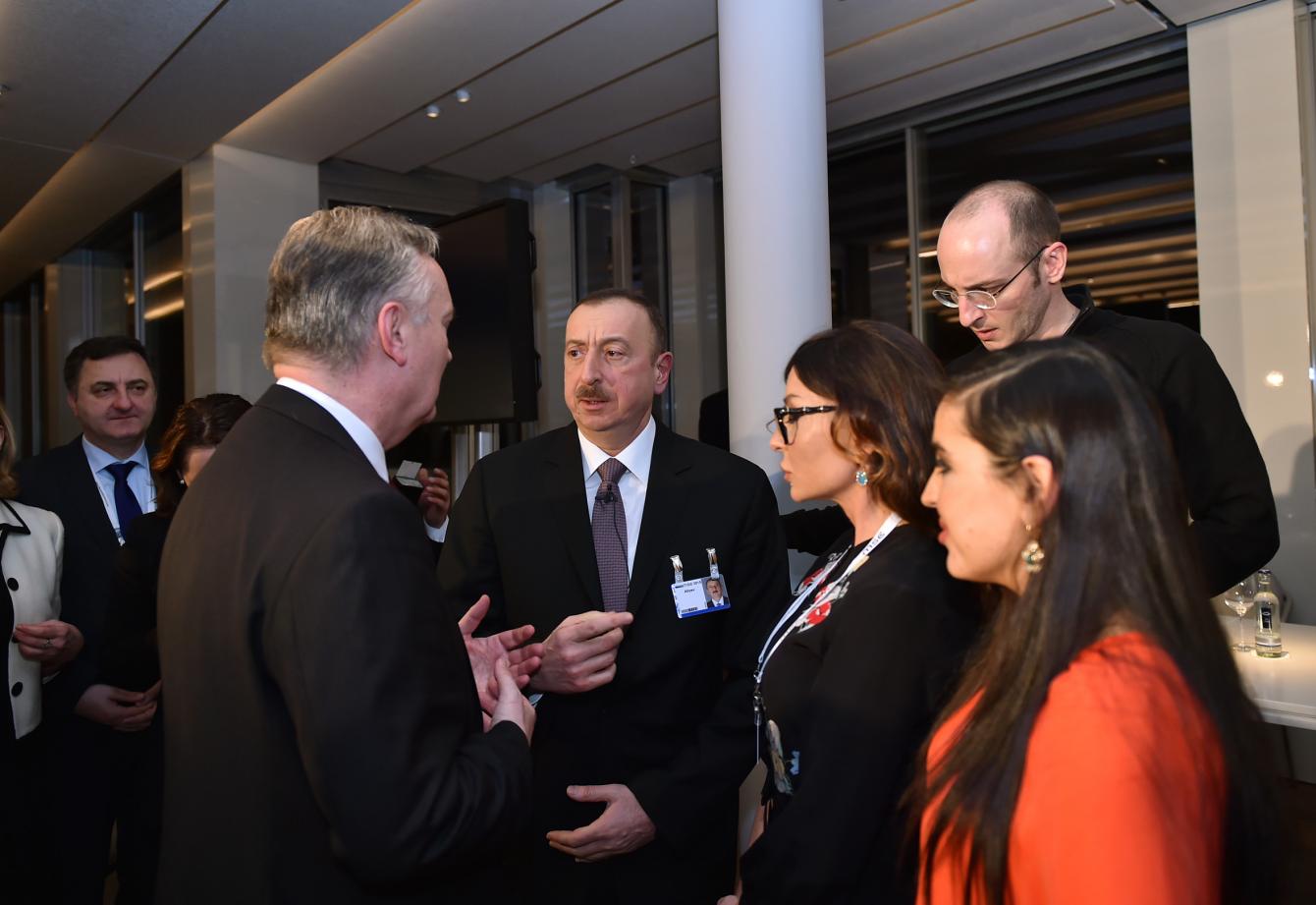

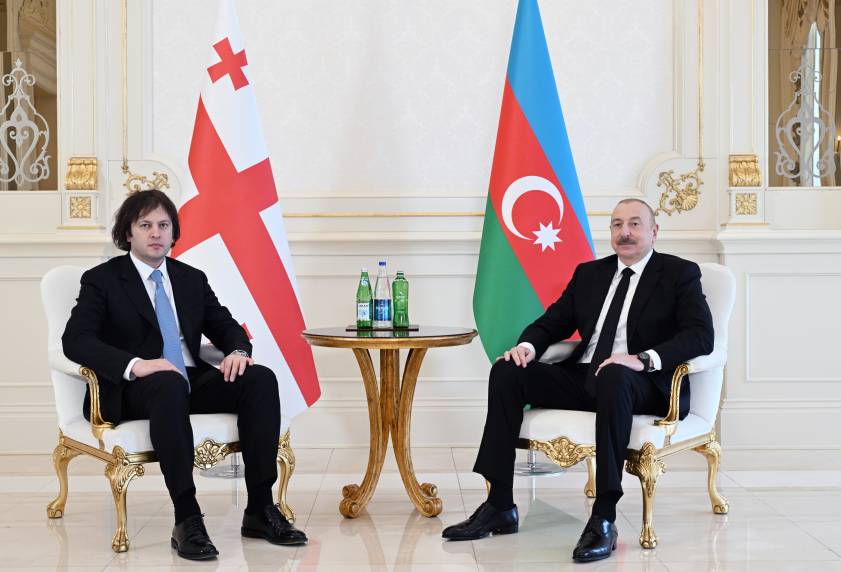
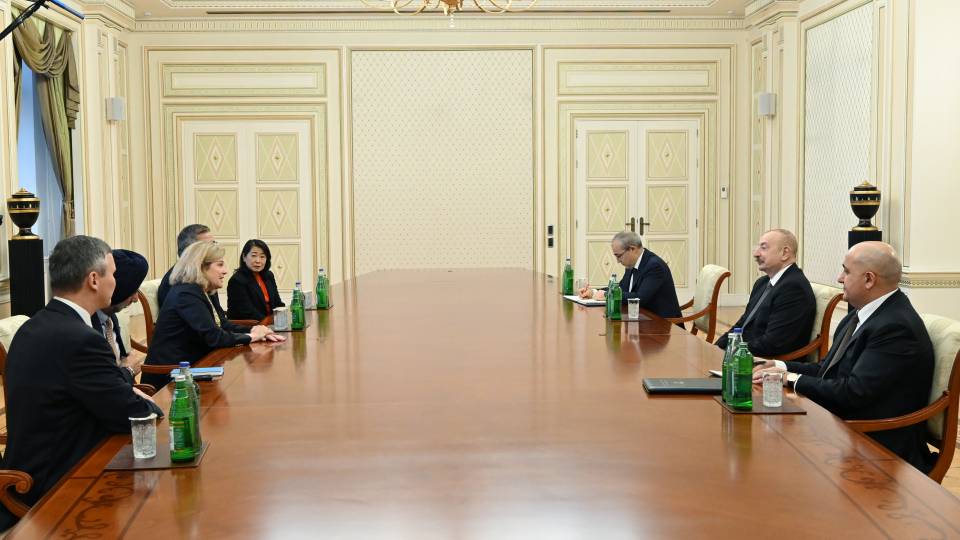
His Excellency Mr. Ilham Aliyev, President of the Republic of Azerbaijan
Your Excellency, Mr. Ilham Aliyev, President of the friendly Republic of Azerbaijan,
Assalamualaikum warahmatullahi wabarakatuh,
The crash of the Azerbaijan Airlines passenger aircraft in the...
15 January 2025, 16:52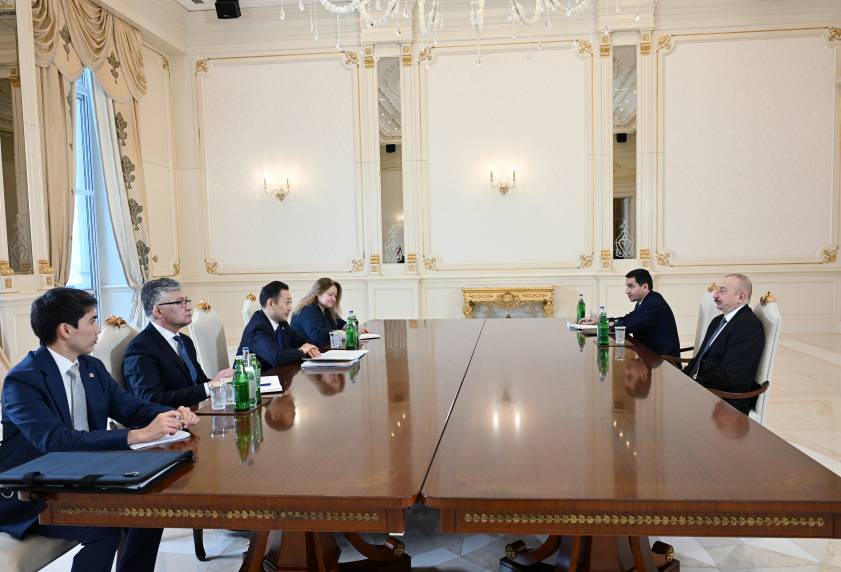
His Excellency Mr. Ilham Aliyev, President of the Republic of Azerbaijan
Dear Mr. President,
I was deeply saddened to learn the news of a tragic crash of a plane, belonging to Azerbaijan Airlines, which claimed the lives of 38 people. Our thoughts are with the...
14 January 2025, 18:36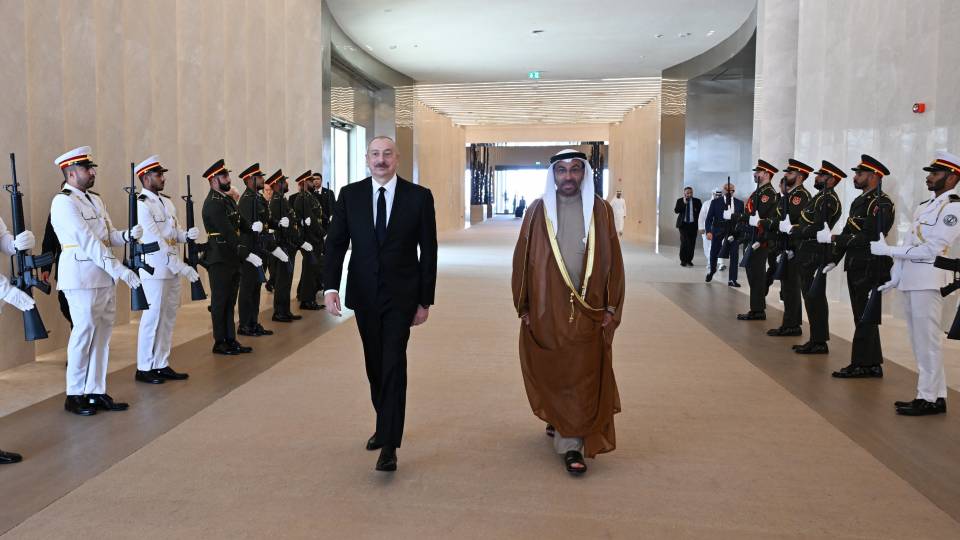
His Excellency Mr. Ilham Aliyev, President of the Republic of Azerbaijan
Your Excellency,
Raja Zarith Sofiah and I are deeply saddened to learn of the tragic crash of Azerbaijan Airlines flight J2-8243 in Kazakhstan on 25 December 2024.
We extend our heartfelt...
14 January 2025, 14:44
His Excellency Mr. Ilham Aliyev, President of the Republic of Azerbaijan
Your Excellency,
I am greatly saddened by the unfortunate and shocking news of the plane crash on Wednesday 25th December 2024 killing 38 people following an emergency landing near the city of...
13 January 2025, 18:50